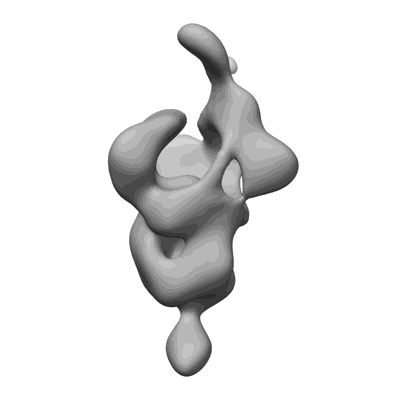EMD-34558
Immune complex of W305-2A5 IgG binding the RBD of SARS-CoV-1 2P spike protein
EMD-34558
Single-particle25.0 Å
 Deposition: 24/10/2022
Deposition: 24/10/2022Map released: 01/11/2023
Last modified: 03/04/2024
Sample Organism:
Severe acute respiratory syndrome coronavirus,
Homo sapiens
Sample: SARS-CoV-1 2P in complex with W305-2A5 IgG
Deposition Authors: Zhu JY ,
Zhou BN
,
Zhou BN 
Sample: SARS-CoV-1 2P in complex with W305-2A5 IgG
Deposition Authors: Zhu JY
 ,
Zhou BN
,
Zhou BN 
Dissecting the intricacies of human antibody responses to SARS-CoV-1 and SARS-CoV-2 infection.
Wang R,
Han Y,
Zhang R,
Zhu J,
Nan X,
Liu Y,
Yang Z,
Zhou B  ,
Yu J,
Lin Z,
Li J,
Chen P,
Wang Y,
Li Y,
Liu D,
Shi X,
Wang X,
Zhang Q,
Yang YR,
Li T,
Zhang L
,
Yu J,
Lin Z,
Li J,
Chen P,
Wang Y,
Li Y,
Liu D,
Shi X,
Wang X,
Zhang Q,
Yang YR,
Li T,
Zhang L
(2023) Immunity , 56 , 2635 - 2649.e6
 ,
Yu J,
Lin Z,
Li J,
Chen P,
Wang Y,
Li Y,
Liu D,
Shi X,
Wang X,
Zhang Q,
Yang YR,
Li T,
Zhang L
,
Yu J,
Lin Z,
Li J,
Chen P,
Wang Y,
Li Y,
Liu D,
Shi X,
Wang X,
Zhang Q,
Yang YR,
Li T,
Zhang L
(2023) Immunity , 56 , 2635 - 2649.e6
Abstract:
The 2003 severe acute respiratory syndrome coronavirus (SARS-CoV-1) causes more severe disease than SARS-CoV-2, which is responsible for COVID-19. However, our understanding of antibody response to SARS-CoV-1 infection remains incomplete. Herein, we studied the antibody responses in 25 SARS-CoV-1 convalescent patients. Plasma neutralization was higher and lasted longer in SARS-CoV-1 patients than in severe SARS-CoV-2 patients. Among 77 monoclonal antibodies (mAbs) isolated, 60 targeted the receptor-binding domain (RBD) and formed 7 groups (RBD-1 to RBD-7) based on their distinct binding and structural profiles. Notably, RBD-7 antibodies bound to a unique RBD region interfaced with the N-terminal domain of the neighboring protomer (NTD proximal) and were more prevalent in SARS-CoV-1 patients. Broadly neutralizing antibodies for SARS-CoV-1, SARS-CoV-2, and bat and pangolin coronaviruses were also identified. These results provide further insights into the antibody response to SARS-CoV-1 and inform the design of more effective strategies against diverse human and animal coronaviruses.
The 2003 severe acute respiratory syndrome coronavirus (SARS-CoV-1) causes more severe disease than SARS-CoV-2, which is responsible for COVID-19. However, our understanding of antibody response to SARS-CoV-1 infection remains incomplete. Herein, we studied the antibody responses in 25 SARS-CoV-1 convalescent patients. Plasma neutralization was higher and lasted longer in SARS-CoV-1 patients than in severe SARS-CoV-2 patients. Among 77 monoclonal antibodies (mAbs) isolated, 60 targeted the receptor-binding domain (RBD) and formed 7 groups (RBD-1 to RBD-7) based on their distinct binding and structural profiles. Notably, RBD-7 antibodies bound to a unique RBD region interfaced with the N-terminal domain of the neighboring protomer (NTD proximal) and were more prevalent in SARS-CoV-1 patients. Broadly neutralizing antibodies for SARS-CoV-1, SARS-CoV-2, and bat and pangolin coronaviruses were also identified. These results provide further insights into the antibody response to SARS-CoV-1 and inform the design of more effective strategies against diverse human and animal coronaviruses.
